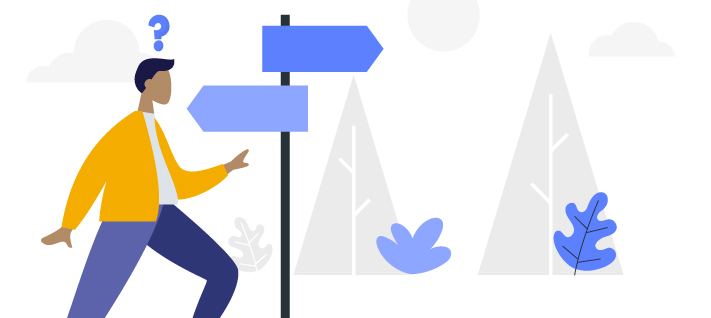Jul 17, 2023
How curiosity can make you a healthier person
Have you ever wondered what a suspicious, unidentified glob on your counter was? Did you touch it? Smell it? Or (for the extra brave) taste it to figure it out? Believe it or not, that makes you a scientist.
I haven’t always thought of myself as a scientist. I used to think that word was reserved for people with PhDs, wearing white lab coats, bubbling liquids in beakers. Yes, those people are being paid to run experiments, and I’m not, but that word scientist still belongs to all of us.
Science is curiosity, and curiosity is a quality we’re all born with. As the mother of three young, energetic children, I see examples of this every day. What happens if I put glue on the cat? How will it feel if I stick this pea up my nose? What sound will it make if I throw this toy down the stairs? This process of being curious, asking a question, guessing what the answer might be and then testing it out is the foundation of science.
It’s fascinating to watch my children interact with the world (although I’m not always happy with the experiments they’re conducting – let me just tell you what happens if you put paint on the walls…). My children made me curious about curiosity itself. And I discovered that curiosity can make you a healthier person.
Before you run out and buy a lab coat, let me explain how to best utilize this inherent trait.
Benefits of curiosity

Leads to better decisions
When we are curious, we engage in knowledge-seeking behavior. We search for answers. For example, when I have to bring my car to the mechanic, I turn on my inner 5- year-old and ask, “why is the car making that noise? How do you know it’s the fan belt causing it? Could it be something else? What would happen if I don’t fix it?” I might become curious about fan belts and do some research online to see if I can fix it myself. This curiosity helps me gauge how much I trust the expert giving me advice, helps me get a deeper understanding of a problem and offers me chances to find better solutions.
This is particularly important when we’re looking at information on the internet. Curiosity helps us separate fact from fiction. Memes are a great way to spark curiosity and practice fact-finding. Did Albert Einstein really say that the only thing we have to fear is fear itself? Do blueberries actually cure acne? Can bees really fly to the top of Mount Everest? When we are curious, we seek deeper truths and more solid understanding. We are less likely to just trust random facts thrown in our direction.
Improves relationships


Sparks joy
Researchers have found through functional brain imaging that when our brains engage in curiosity or knowledge-seeking behavior, areas of our brain associated with rewards light up. Our brains reward us with good feelings when we are curious. Some research has linked low levels of curiosity to depression.
The link between curiosity and joy is particularly easy to understand when we watch children interact with their surroundings. When children find something new to explore, their faces light up, they laugh, they become hyper-focused and they play. Imagine if we could bring even a fraction of that joy to our work-lives and experience emails, meetings or customers the way a child would experience finding a new puddle to splash in.

Enhances learning
Think about something you know a LOT about. Maybe it’s sports, cooking, music, or pop culture. You got this knowledge through research even though it probably didn’t feel like research at the time. Research is driven by curiosity. When you want to know more, you’re more likely to ask questions that build a more comprehensive picture, and then you have a foundation of information you can build upon. Why does this recipe ask me to mix dry and wet ingredients separately? Do other recipes do that? What happens if I’m being lazy and just mix it all together at once…. Okay, that was a bad idea.
Kids often go down the rabbit hole of asking why over and over again until caregivers no longer have answers. When it comes to asking why, they keep digging until they have to stop. As adults, we tend to be more shallow in our curiosity, which leaves our understanding less clear. What would happen if we asked one more question every day and followed our curiosity a little deeper? Chances are the world around us would become a little easier to understand.
Prevents boredom
We are all born with curiosity, and it is not unique to humans. Evidence of information-seeking behavior has been found in a range of species, from monkeys to pigeons. Other experiments have shown that even when there is no material gain, people and animals still engage in this behavior. But one barrier to curiosity is this notion that certain information belongs to certain people. As a medical professional, I can’t tell you the number of times I’ve heard someone say that can’t understand something because they’re not a doctor. Can only astronauts understand the moon? Are professional chefs the only people who can cook good meals? Can only NFL coaches understand plays? Of course not, and we typically don’t feel underqualified to seek knowledge in these other areas of our lives.
We all can and should be scientists. When we ask questions, we get answers. When we get answers, we grow, and the world around us starts to make more sense. We have fun, we make better decisions, and we get along better with others. And it’s okay to make a few messes along the way.
Did you find this article informative?
All Coverage content can be reprinted for free.
Read more here.

